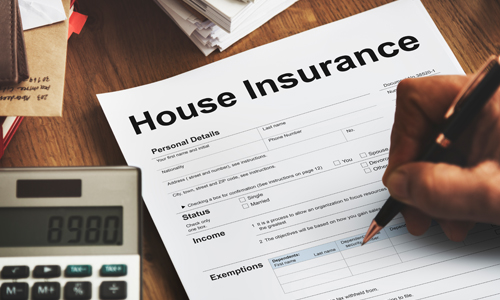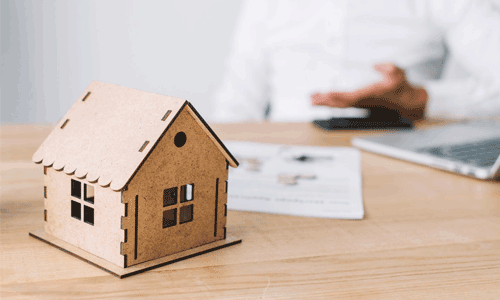What is Home Insurance Underwriting?
Home insurance is essential for protecting your property against unforeseen damages and losses. But have you ever wondered how insurers decide the terms and premiums for your policy? That's where underwriting comes into play. Insurers use the process of home insurance underwriting to evaluate the ...read more

- Instant Issuance
- Personalised Expert advice
- Guaranteed Low prices
Home Insurance starting at AED 33/day
What is Home Insurance Underwriting?
Home insurance underwriting is the process through which an insurance company evaluates the risk associated with insuring your home. This assessment helps the insurer determine whether they should offer you a policy, under what terms, and at what premium. The underwriter is the professional responsible for this evaluation, using various data points to make informed decisions.
Suppose you are looking to buy a home insurance policy in UAE. When you approach an insurer, they will ask you several questions about your property. These questions might include details about the construction materials, the age of the home, its location, security systems in place, and previous claims history. This information helps the underwriter assess the potential risks and decide on the coverage terms.
For instance, if your home is located in a flood-prone area or is made of materials that are more susceptible to damage, the property and casualty insurance underwriting process might result in higher premiums or specific coverage exclusions. On the other hand, a well-maintained home with security measures might be deemed lower risk, potentially leading to more favourable terms.
Goals of Home Insurance Underwriter
The key role of home insurance underwriter involves the following -
- Risk Mitigation: The primary goal of home insurance underwriting is to assess and mitigate the risk associated with insuring a property. By evaluating potential hazards and vulnerabilities, home insurance underwriters can determine appropriate coverage levels and premiums.
- Fair Premium Calculation: Home insurance underwriters set fair and accurate premiums that reflect the true risk of insuring a property. By carefully analysing various risk factors, insurers aim to make homeowners pay a premium that corresponds to the level of risk. This approach makes the insurance process equitable and sustainable for both the insurer and the insured.
- Financial Stability of the Insurer: One of the key goals of home insurance underwriters is to maintain the financial health and stability of the insurance company. By carefully selecting and pricing policies, underwriters help prevent excessive payouts and ensure that the insurer remains solvent, capable of paying out claims when necessary.
- Customer Trust and Satisfaction: By providing accurate assessments and fair premiums, home insurance underwriters help build trust with customers. Clear and transparent underwriting practices help homeowners to understand their coverage and feel confident that they are adequately protected.
How Does Property and Casualty Insurance Underwriting Work In UAE?
Property and casualty insurance underwriting in the UAE involves a comprehensive evaluation of risks associated with insuring a property or a business. This process determines both the terms of coverage and the premium that policyholders will pay.
The Underwriting Process
- Risk Assessment: The underwriter collects and analyses data about the property or business to be insured. This includes details about the location, construction materials, age of the building, and the presence of safety features such as fire alarms and security systems.
- Information Gathering: During the home insurance underwriting process, the underwriter might ask questions such as:
- What is the age and structure of the building?
- What materials are used in construction?
- Are there any existing safety systems like smoke detectors or security cameras?
- What is the claims history of the property?
For example, if you approach an insurer, they will evaluate risks associated with fire, natural disasters, theft, and other potential hazards that could affect your property and its contents.
- Premium Calculation: Based on the gathered information, the underwriter determines the appropriate premium. Properties with higher risks, such as those in flood-prone areas or older buildings with outdated wiring, may incur higher premiums.
- Policy Terms: The underwriter also establishes the terms of the insurance policy, including coverage limits and exclusions. For instance, properties situated in high-risk areas might have higher deductibles for certain types of claims.
Fixed Factors Affecting Insurance Costs
- Location: Properties in areas prone to natural disasters or high crime rates will have higher premiums.
- Construction Materials: Buildings made from fire-resistant materials may be cheaper to insure.
- Age of the Property: Older properties might have higher premiums due to potential structural issues and outdated systems.
Variable Factors Affecting Insurance Costs
- Safety Features: Installing fire alarms, smoke detectors, and security systems can lower the home insurance premium.
- Maintenance: Regular upkeep and timely repairs can reduce the likelihood of damage, potentially lowering insurance costs.
- Claims History: A clean claims history can result in lower premiums.
Government Rules for Home Insurance Underwriting in UAE
Home insurance underwriting in the UAE is governed by a combination of federal and emirate-specific regulations to provide the financial stability of insurance providers and to protect policyholders.
- Regulatory Framework: The UAE insurance industry is primarily regulated by the Central Bank of the UAE (previously the Insurance Authority), which manages the implementation of insurance laws and regulations across the country. This includes the licensing of insurance companies and brokers.
- Compliance Requirements: Insurers must comply with various regulations, including those related to financial solvency, policyholder protection, and anti-money laundering. These regulations are detailed in federal laws such as the UAE Insurance Law and its implementing regulations.
- Policy Standards: Insurance policies, including home insurance, must meet certain standards set by regulatory authorities. This includes clear definitions of coverage, exclusions, and the procedures for claims. Insurers must also provide transparent information to policyholders about their rights and obligations.
- Risk Assessment: Underwriters are required to follow guidelines on risk assessment, so that the evaluation process is thorough and fair. This includes considering factors like the location, construction materials, age of the property, and previous claims history.
- Local Regulations: Each emirate may have additional regulations. For instance, Dubai has specific requirements for insurance policies related to construction works, which can impact property insurance underwriting.
Get the Best Coverage for Your Home
Home insurance isn't just a necessity; it's your safety net. The home insurance underwriting process ensures you know exactly what you're paying for and what coverage you get. With a thorough risk assessment, home insurance underwriters help tailor a policy that meets your specific needs and you get the best value for your money.
For personalised advice and a quote, visit Policybazaar.ae and find the perfect coverage for your home today!
More From Home Insurance
- Recent Articles
- Popular Articles

















